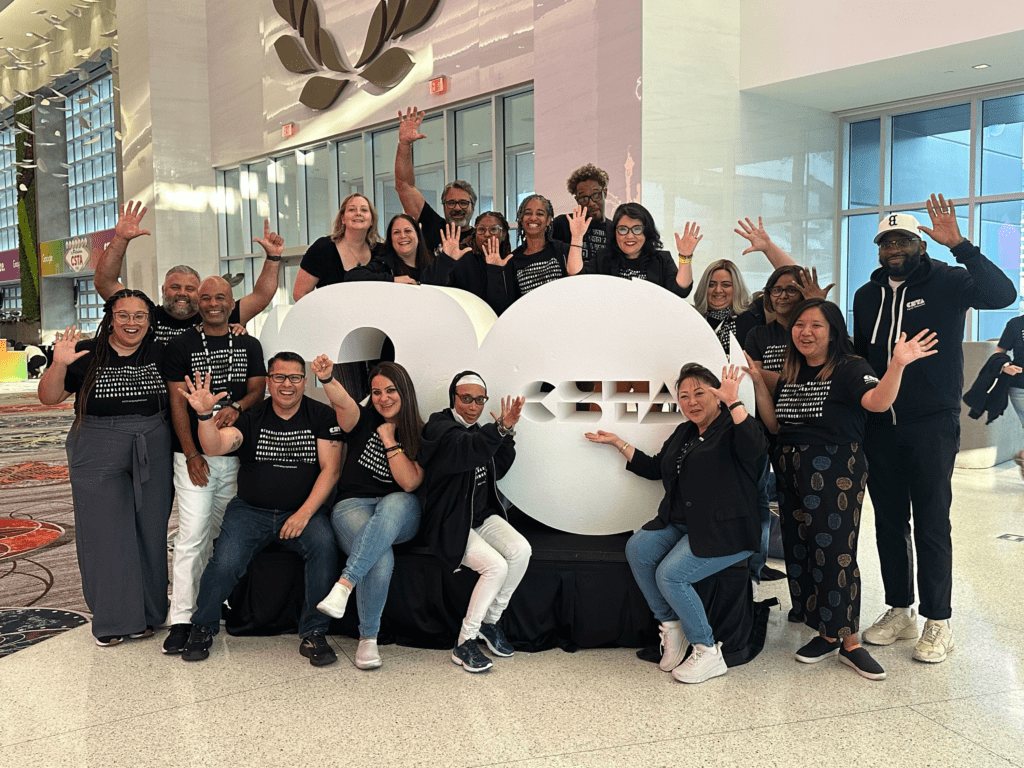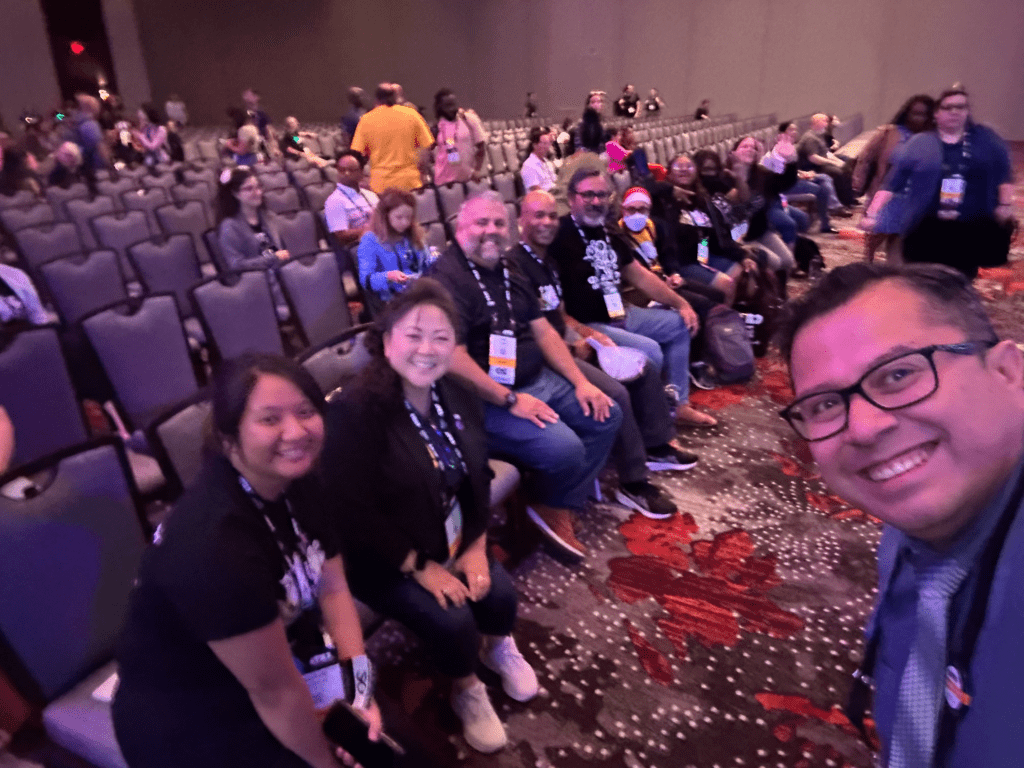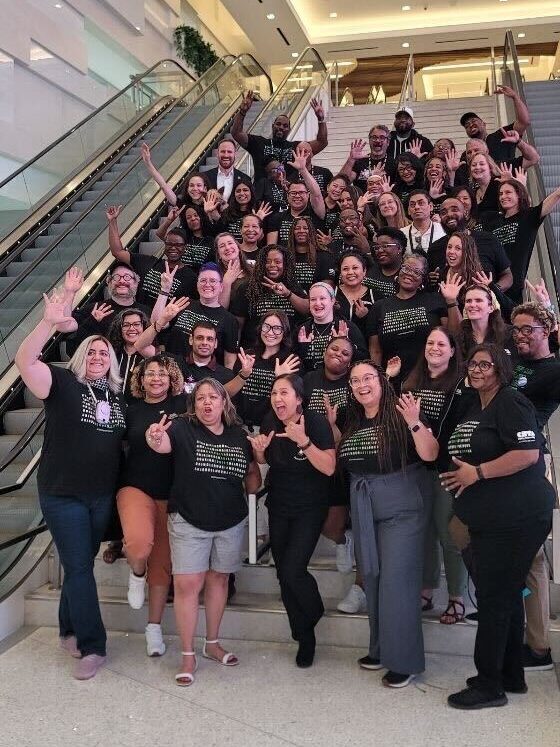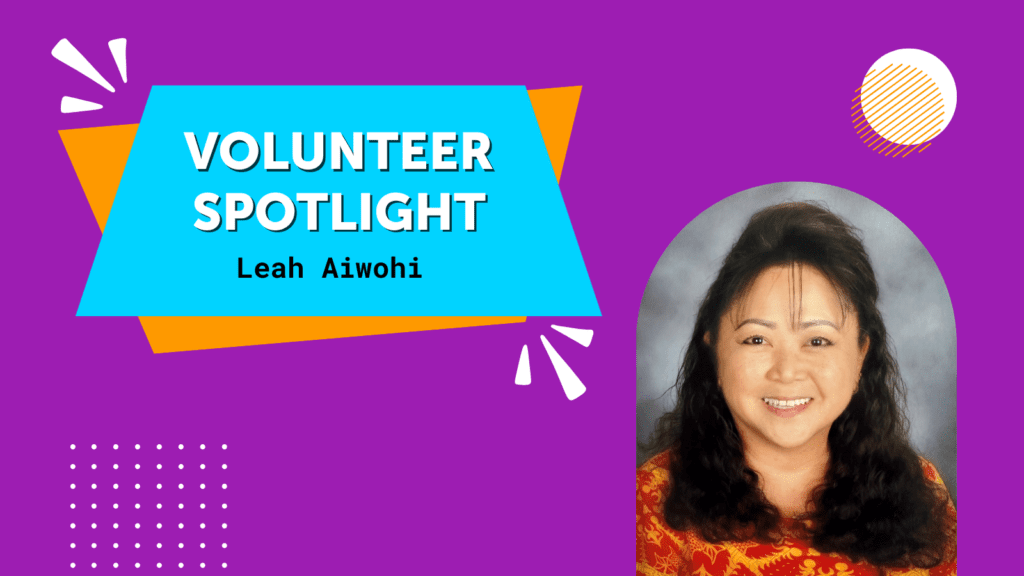Welcome to the CSTA Volunteer Spotlight series, where we celebrate the incredible individuals who dedicate their time and passion to making a difference in the CSTA community. Join us in recognizing the extraordinary work of Leah as an Equity Fellow and Conference Committee member.
What inspired you to volunteer your time with CSTA? How has this experience impacted you?
As a computer science educator, I’ve always been driven by a commitment to equity and inclusion ensuring that all students, especially those from underrepresented communities feel seen, valued and empowered in tech spaces. Volunteering with CSTA felt like a natural next step to extend that impact beyond my classroom.
What truly inspired me was CSTA’s mission and the opportunity to collaborate with a national community of educators who share similar values. Through my work as a CSTA Equity Fellow, member of the “Identifying AI Priorities for All K-12” workgroup, and now as the Posters Chair for the upcoming CSTA Conference, I’ve had the chance to grow as a leader, contribute to meaningful conversations, and help spotlight innovative and inclusive teaching practices.
These experiences have deeply enriched my professional journey. They’ve expanded my network, pushed my thinking, and reminded me that change happens when educators come together with a shared purpose. CSTA has given me a space to lead, learn, and give back and I’m grateful for every moment of it.
How long have you been involved with CSTA, and what motivated you to join?
I’ve been involved with CSTA since 2017 and from the very beginning, I was drawn to the sense of community and shared purpose among educators who truly care about expanding access to quality computer science education.
What motivated me to join was the desire to grow, not just as a teacher, but as an advocate for equity and representation in CS. I wanted to connect with others who were having the same conversations I was having in my classroom and community, and CSTA provided that space for me. It offered resources, support and most importantly, people who were committed to doing the work to make computer science more inclusive, engaging, and empowering for all students.
Can you share any memorable experiences or highlights from your involvement with CSTA?
One of the most meaningful parts of my CSTA journey has been being part of the Equity Fellow program and a member of our #LiveFive cohort who have become so much more than a professional network, we’ve truly become a family. Over time, we’ve grown incredibly close, showing up for each other not just in our work, but in our lives.
We celebrate each other’s wins, big and small, and cheer each other on through every new opportunity and accomplishment. But even more powerful has been the way we support each other through the tough moments. We’ve shared disappointments, personal challenges, and growing pains, and there’s always someone ready to listen, uplift, and stand beside you. That kind of unwavering community has been a highlight I’ll carry with me always. It’s a reminder that this work is not just about curriculum or programming, it’s about people, connection and shared purpose.


How has CSTA impacted your teaching career and professional development?
CSTA has been a game-changer for my growth as both an educator and a leader. Through its resources, community, and leadership opportunities, I’ve gained new strategies, perspectives, and confidence that have directly influenced my teaching practice. It’s helped me deepen my commitment to equitable CS education and given me tools to bring that vision to life in my classroom.
The professional development I’ve received, especially through the Equity Fellowship and workgroups like “Identifying AI Priorities for All K-12” has pushed me to think more critically about representation, accessibility, and the future of tech education. At the same time, serving as Posters Chair for the upcoming CSTA Conference has allowed me to step into a leadership role, lifting up the voices and innovations of fellow educators.
CSTA hasn’t just made me a better teacher, it’s helped me to find my voice as a changemaker in this space.
In what ways do you see CSTA shaping the future of computer science education?
CSTA is playing a vital role in shaping a more inclusive, innovative, and human-centered future for computer science education. By prioritizing equity, accessibility, and teacher voice, CSTA ensures that the people closest to the classroom are guiding the direction of our field. It’s not just about teaching students to code, it’s about reimagining who gets to be part of the tech world and what problems we empower them to solve.
Through programs like the Equity Fellows, national conference, and regional chapters, CSTA is building a strong, connected community of educators who are leading change from the ground up. I see CSTA continuing to push boundaries with centering ethics, AI, social impact, and diverse representation in CS, and supporting teachers as they bring that vision into their schools and communities.
The future of computer science education depends on collective action, and CSTA is helping us move forward, together.

Are there any specific initiatives or projects within CSTA that you’ve been particularly passionate about?
Being part of various roles with CSTA has been one of the most transformative and meaningful experiences in my journey with CSTA. I’m deeply passionate about creating more equitable pathways into computer science, and this initiative provided the space, support, and community to actively work toward that goal. It empowered me to amplify underrepresented voices, reflect on my own practices, and lead conversations around equity with confidence and care.
With AI becoming increasingly integrated into daily life, I’m passionate about helping students and educators navigate its opportunities and challenges thoughtfully and responsibly. I would like to continue with this work. I’ve also had the joy of helping spotlight innovative work from educators across the country. Uplifting their stories and sharing their impact is something I care deeply about.
Each of these roles has connected me to passionate educators and meaningful work that goes far beyond the classroom, and I’m incredibly proud to be part of it.
What does the future of CSTA look like?
The future of CSTA will continue to be bright, bold, and deeply rooted in community. I see CSTA continuing to lead the way in creating a more inclusive and representative computer science education landscape, one where every student sees themselves reflected in the curriculum and every teacher feels supported, valued, and empowered.
CSTA will keep evolving alongside the field, whether that’s integrating emerging technologies like AI, addressing digital equity, or supporting educators in rural, urban, and underserved communities. I believe the organization will continue to amplify teacher voices, invest in educator leadership, and build strong, lasting networks that drive innovation from the classroom outward.
What excites me most is that the future of CSTA is being shaped by educators who truly care, not just about what students are learning, but WHY they are learning it, and who gets to be part of the conversation. That vision gives me hope and a deep sense of purpose.

